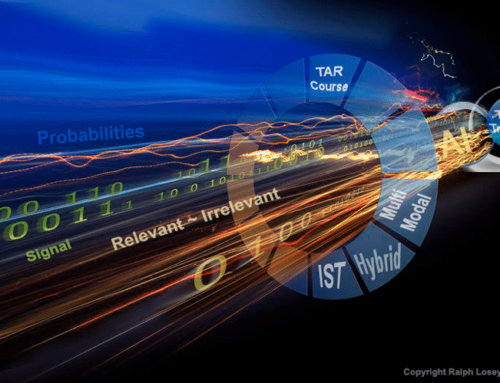Global eDiscovery Strategies:
Global litigation is very common today with international business deals, emerging technologies, and new regulations invoking cross-border obligations. Many countries have now adopted eDiscovery processes so it is important for legal teams to factor that into their litigation readiness plans and codevelop protocols. Developing international strategies cane be challenging due to varying and conflicting legal directive. There are some important things to consider when creating a global eDiscovery strategy.
Discovery Laws and Regulatory Influence
Each country almost always has a different way of approaching eDiscovery. Therefore, it is vital to have knowledge of all the laws relevant to a case. China, for example, has unique data transfer rules making certain organizations subject to state secret review of data before it can move across borders. If information for a case is stored in China and subject to these restrictions, it is important to have an established process on how to handle this issue. If a country forbids cross-border data transfer then a legal team must have a way to host, process, and review the data in the country of origin. All legal teams must also be aware of worldwide consumer privacy laws. In addition, teams should be familiar with US court decisions covering discovery needs that conflict with international regulatory obligations.
Cost Considerations
It is important to factor in anticipated and fluctuating costs when creating a global eDiscovery budget. There are the standard review costs associated with a strictly US case, but other potential costs can include international data centers, research, extra staff, multilingual technology solutions, travel, translation, and licensing.
Partnerships Advancing eDiscovery Objectives
When creating a strategy, a team needs to balance local laws against the desire for uniform processes. Collaborating with a provider that has global reach and expertise with eDiscovery requirements abroad can be cost efficient, time efficient, and provide a consistent defensible approach to international issues. When choosing a provider to parterre with it is vital to find one with language capabilities and local data centers. A managed services arrangement with a global eDiscovery provider may be the best choice for cost optimization and risk management.
Always remember that global eDiscovery strategies evolve as legal landscapes are the globe change. New eDiscovery and data laws will continue to influence global litigation and present unique challenges. Having a structured yet flexible strategy will make the process more manageable, lessen risk, address budget concerns, and avoid wasting resources.
For more Tidbits & Thoughts, please click here.






